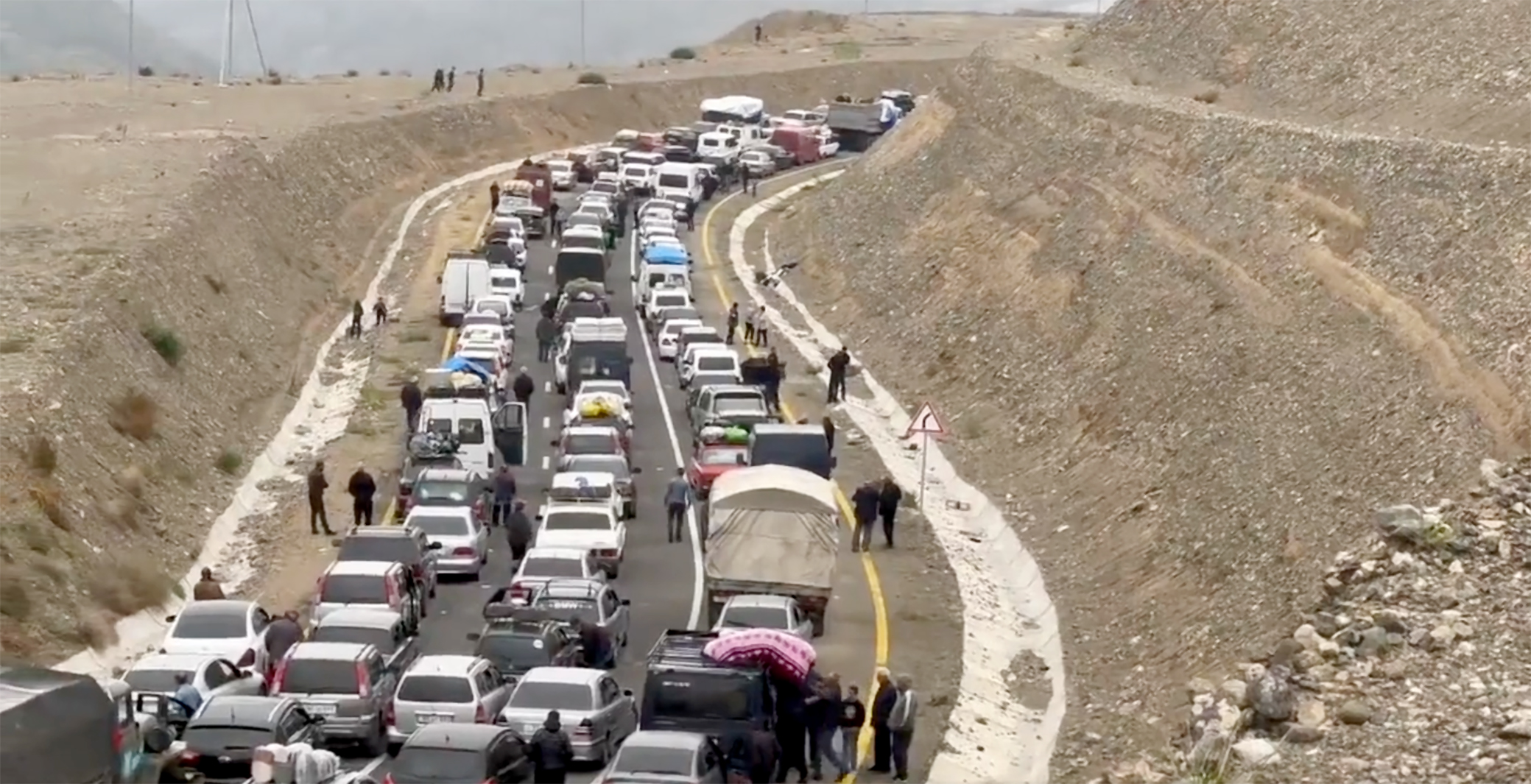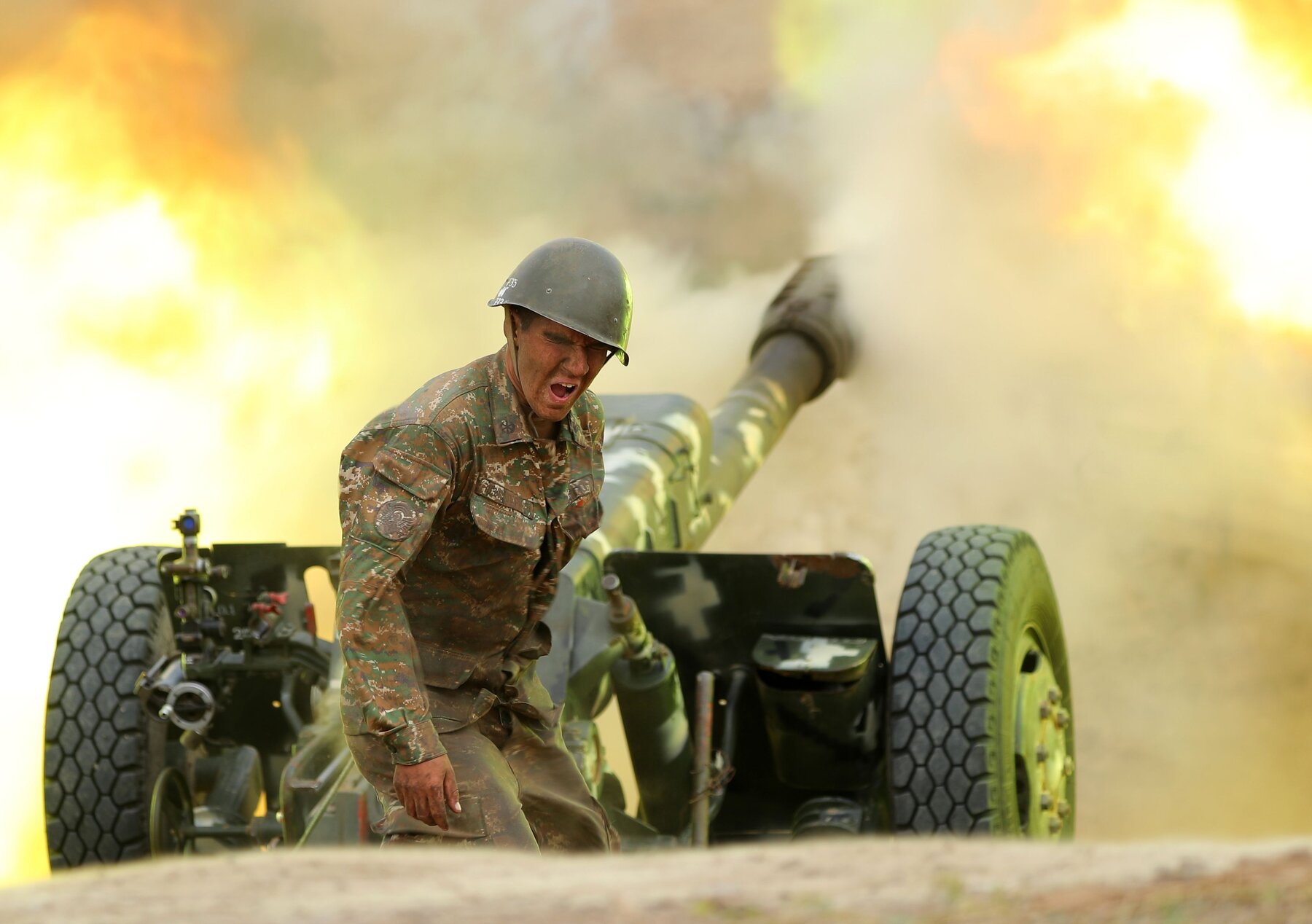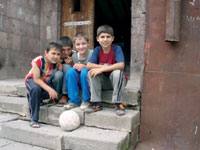A people between war and peace
- Here we have Shosh, a town in the Upper Karabakh district (Armenian, Artsakh), located on the new border between the Armenians and the Azerbaijanis. Its inhabitants have in view the movements of the enemy as they go out to the balconies. I remember raw from what was lost a year ago in war.
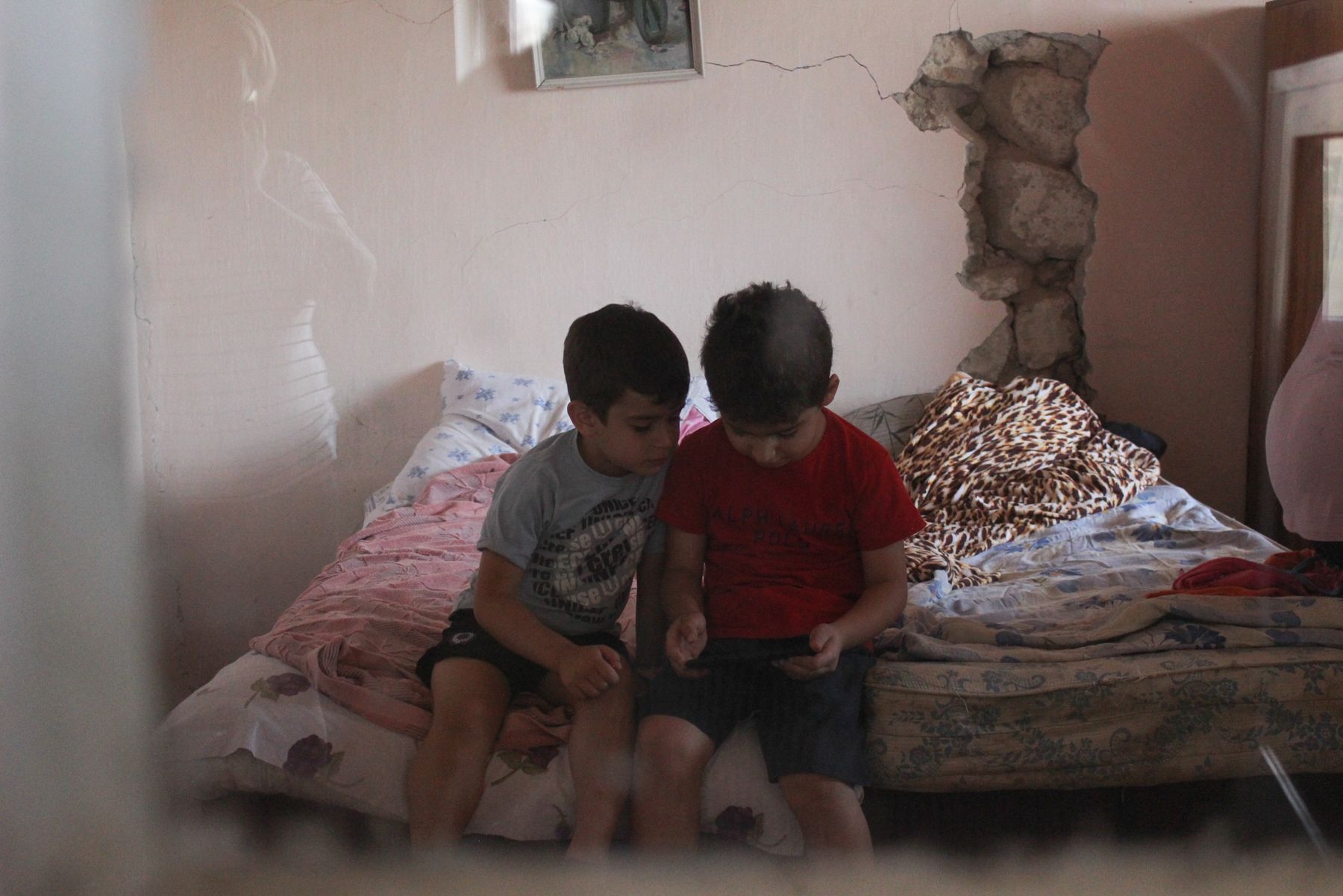
On 27 September 2020, Azerbaijan launched a major attack on the republic of Karabakh Garaia, thus reviving an unresolved territorial conflict since the time of the Soviet Union. On 11 November both sides signed a ceasefire through Russian mediation.
Before the war, 621 people lived in the town of Shosh. According to the City Council, there are currently 480 people, of whom 37 are refugees from the occupied territories of Artsakh. Shosh has been heavily bombed in both the First Karabakh War (1991-1994) and the First Karabakh War in 2020. Andreas Margaryan, a 64-year-old man, was mayor of the city during the Soviet era, and is currently engaged in agriculture and beekeeping. He has rebuilt his 150-year-old stone house twice and firmly says that he is willing to do so again, because it is a good that owes his children.
“We all have our role in this country. If you have nothing to do, you are not part of the community,” Margaryan insists. While housing the house of his ancestors, he firmly maintains his work for the benefit of Shosh and offers the best of himself.
Shosh boys and girls are already aware of the danger they have in their environment, and do not shirk their mission. On the morning of September 27, 2020, it was not like a horror film for Artyom, but something new and extraordinary: it discovered the shooting and smoke of the burning military material. Artyome is 10 years old, but his imagination looks like a soldier of past centuries. On 27 September, unfortunately, the fear did not take over Artyom: he went to look for the cows of the family to a nearby town that was in attack, before finding a refuge for him.
Since the mid-19th century, the ancestors of Suren Babayan have lived in the village. Babayan has been working for Shosh for six decades, has gone twice to war and has experiences of all kinds: times of good relations with the Azerbaijanis, fear of the next bomb hitting their home... It has lost pastures and livestock, both family and friends, but since the neighbours are still the owners of their lands, hope has not been exhausted. The people begin to rise again after suffering terrible bombardments during the previous war. The damage is gradually being redressed thanks to state aid, the people of the people go back to their corner and each one takes up the usual rhythm of life. However, according to Suren, the future of this little corner is in the dark.
“I am an older man and I am able to understand everything,” says Babayan, “but how can young people have hope in the future if their lands are in the hands of the enemy? We are not masters of our future. The future is fuzzy and unclear.”
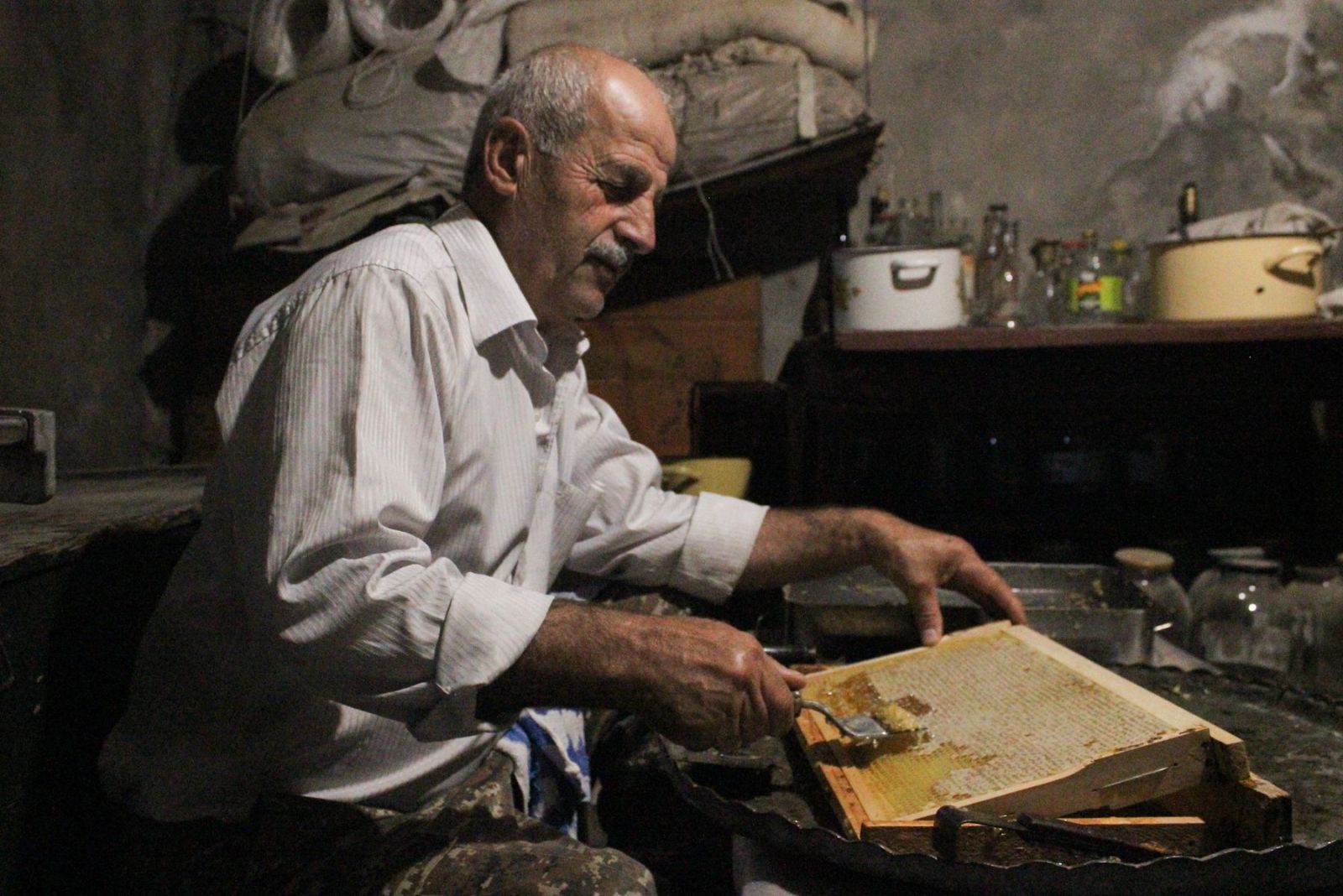
The Republic of Armenia has offered DRAM 95 billion (EUR 175 million) to overcome the crisis in Karabakh Garaia. Of these, DRAM 3.6 billion (EUR 6.7 million) will be invested in economic development. According to Armen Tovmasyan, Minister of Economy of Upper Karabakh, all sectors of the economy are in decline, except housing. The latter area has seen an increase of 106 per cent, thanks to the efforts made to resolve what the war has destroyed everywhere. Shosh’s infrastructure suffered a great impact and reconstruction works in the village continue until the 150 buildings damaged by the war are repaired.
Shosh has lost land for agriculture: animals cannot be grazed because crossing the border is dangerous. The City Hall says that two stolen horses were recovered in June 2021 thanks to Russian negotiations. Subsequently, four other horses were stolen by Azerbaijan. On the other hand, seven people died, according to the City Hall, from military operations carried out near Shosh.
Today, the people do not have major problems with electricity and running water, but it cannot be ensured that this will continue in the future. Arayi, President of Upper Karabakh, Harutyunyan, has pointed out that the State is undertaking new agricultural promotion projects, mainly land distribution for peasant activity. A major effort has been made to increase the number of animals: 10,767 animals have been donated by the government to the Shushi region, which encompasses the village of Shosh. According to the Minister of Economy of the Republic of Karabakh Garaia, the government has also launched livestock regulation and grassland management programmes in Shosh and ten other localities.
Not all neighbours played the same during the war: women, the elderly and children travelled to Armenia in search of temporary shelter. However, men prioritized the defense of their homes. According to an official report by Amnesty International, Armenia welcomed nearly 109,000 refugees and asylum seekers until October 2020. By May 2021, they remained 37,700.
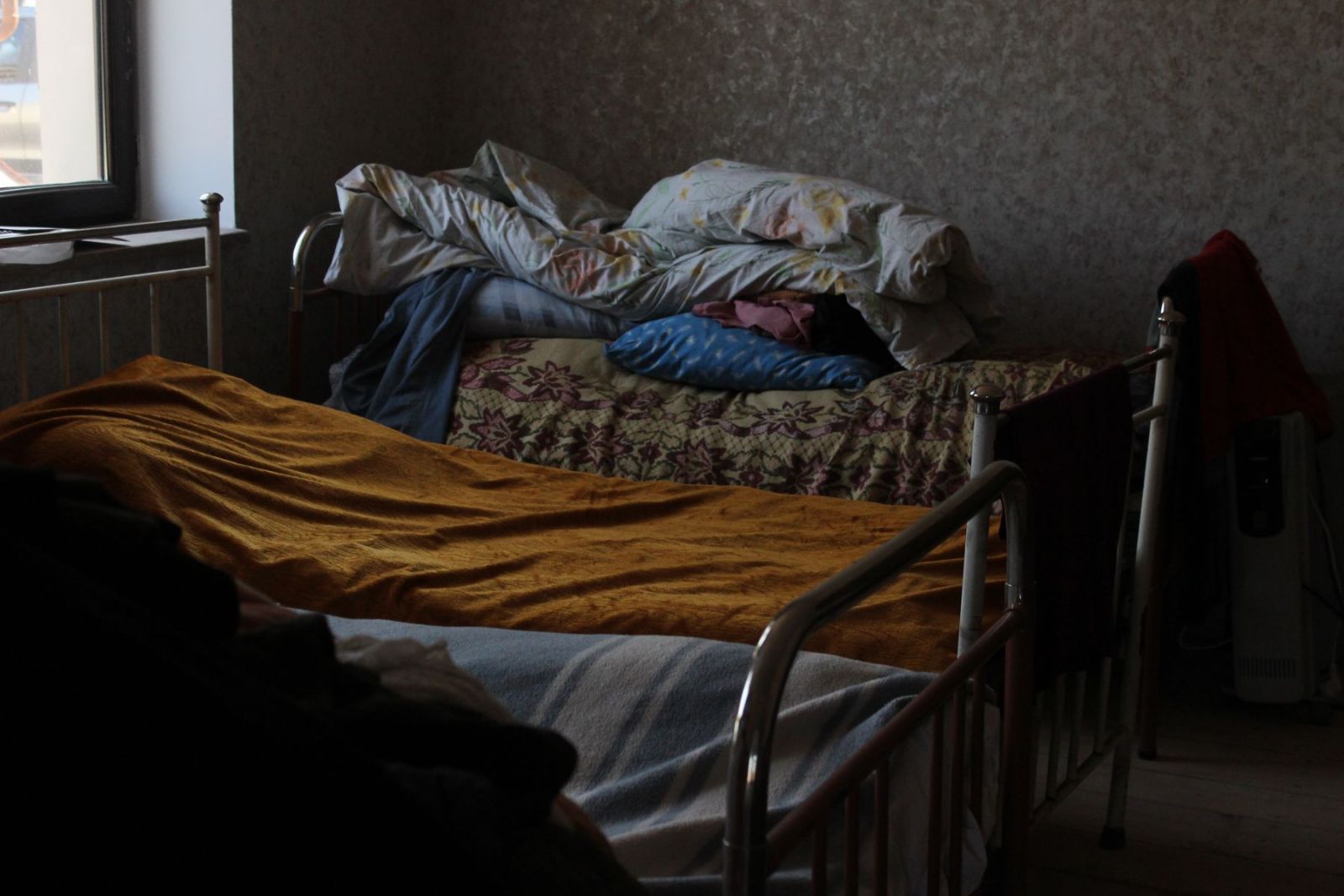
Babayan and Margaryan did their best to maintain the stability of the people while the artery of Azerbaijan was constantly bombing. With his children on the front, Margaryan collaborated with the team of soldiers formed by the people’s neighbors in the supply of military personnel. In his eagerness to emphasize the importance of committing to the Homeland, he speaks of a phrase from a film: “In the end we will all die, but we will send those who fell for protecting the homeland. Dying for freedom is a holy death.” Margaryan has shown us his firm commitment to the defence of Shosh, as the availability for the work that citizens show serves to encourage each other. “My grandchildren will live in this house while I am able to guarantee their safety,” he says.
As she dreams of being a soldier, Artyom lives with her parents, her grandparents and her small cousins. Grandma, Julietta Grigoryan, is 59 years old and works as a cleanser at the village school. During the war she was out of the town, as her sister-in-law was about to give birth. He was born in Armenia, in the village of Masis. He is pleased to remember the days spent in Masis, after an addictive reception. “Our neighbors were the Yezidias,” he said, “and every Friday they gave us food: meat, coffee and sugar. They did everything with us.”
Despite not having the right living conditions, Julietta's family returned to the town shortly after the truce, along with the newborn. They have received the assistance of the State and some international NGOs, including the International Committee of the Red Cross, but the family continues to feel the threat close by, insofar as Azerbaijani soldiers are visible from the window. The neighbours are smoked by livestock, as the land of the people is not suitable for sowing or grazing. In most cases, the Azerbaijanis own the cattle that cross the border, although the Russian soldiers of the peace mission sometimes try to recover the animals. The land cultivated by Grigoryan is on the other side of the border, but now the catwalk is almost always closed and can only be opened by Russian mediation. Grigoryan tells us: “Once my husband and I went there, but the Azerbaijanis did not let us cross. We came back again, so they shot in the air to scare us. Yes, with the help of the Russians we can go to harvest, but we cannot cultivate the land freely.”
The presence of Russian soldiers on a peace mission does not encourage people much. The recent war endangers self-government and Margaryan is aware of its value. “Independence, hymn and flag: Armenians have been fighting for these values for centuries. And now we're losing that struggle," he says. “In my house I feel more dependent. I have keys, but I don’t own the house.” Babaya shares this view: he believes that Upper Karabakh will never be in the hands of anyone, it will be a conflict forever. He believes that there is no alternative but Russian presence. “To the extent that our voice is willing to listen, we must trust them. If they leave, who are we going to call?” says Babayan.
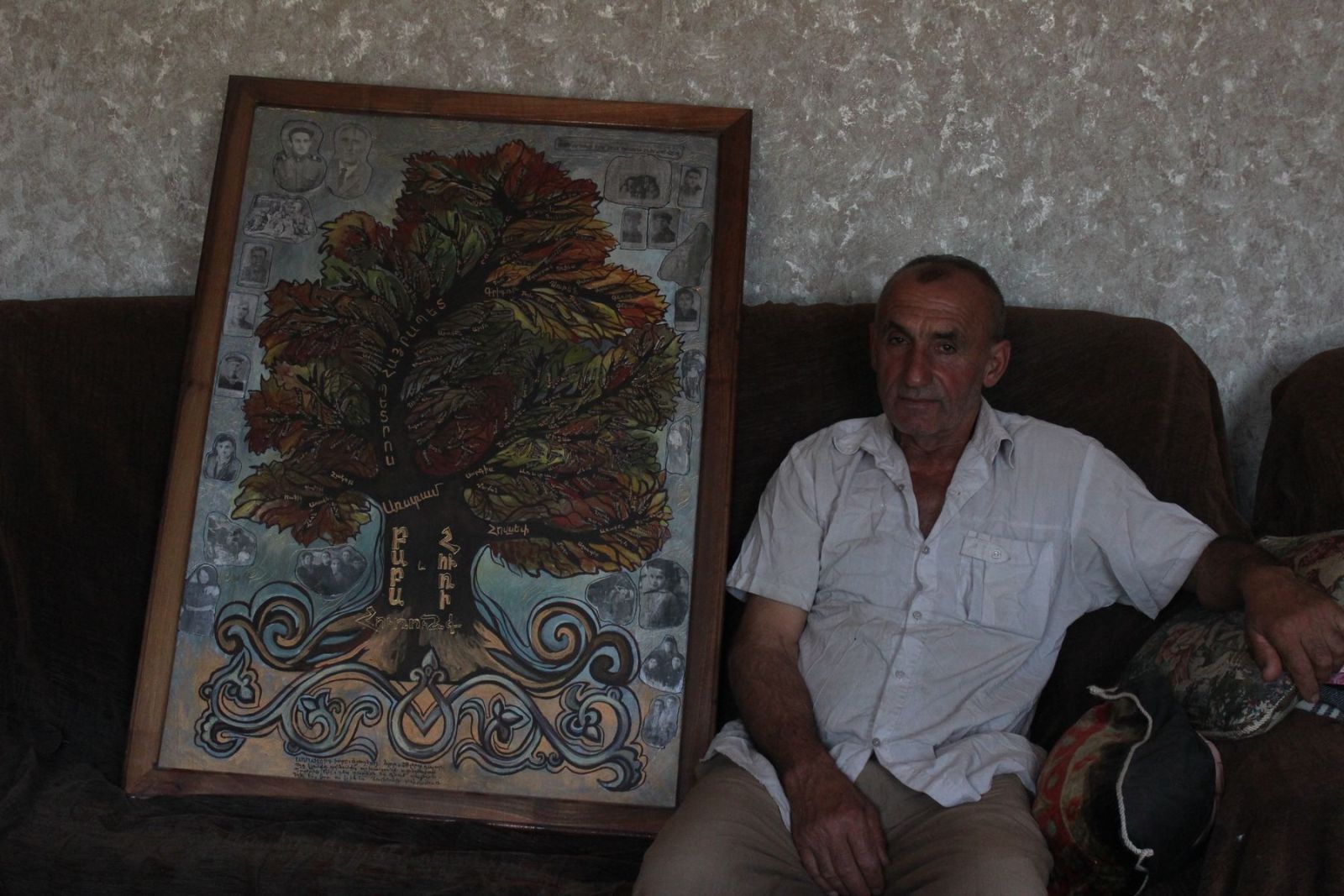
In Babaya, one of those who stayed in a village so close to the hands of the enemy, was the one who suffered the sleepless nights and the horrors of war. In those dark days, his wife was his main sustenance. His wife did not leave the village until the end of October, as every second in his house was suffering. “On this couch we sat my wife and I, and we heard the hum coming up when the houses around us exploded, when the bomb that would hit ours arrived.” However, despite the proximity of the shadow of death, Babayan remained active. While the three children were on the front, he took care of the neighbors’ cattle and drove the people to Stepanakert. Many animals suffered and died as a result of the bombings and lack of attention, but Babayan managed to save some of his animals.
Despite the difficulties in maintaining the pace of life, residents continue to maintain a strong sense of adherence to Shosh. They are surprised at the idea of abandoning the village in order to achieve a better life. People have felt the need to see and intervene, that the many problems of the people need a solution. It is about to complete the repair work of the destroyed roof in Margarya, for the coming winter. He does not hesitate to work to improve the living conditions of his grandchildren. “Whatever feels connected to the people will offer their last breath in favor of Shosh,” says Margaryan, “this is our destiny and we should not dodge it.”
Samvel Babayan also has a great source of hope, fed by the courage of his son, who struggles to create a new life, despite having lost the watermelon fields that gave him the trade. The lands of the eldest son were in Aghdam, a town now within Azerbaijan ' s borders as a result of the war. “We lost faith in the future for a moment,” says Babayan, “but fortunately my predictions were wrong.” Having overcome this tragedy, his children began to cultivate new land in Askeran, a people that has remained in the hands of the Armenians. This console in Babaya, since then, is convinced that there are still opportunities. “The children had to go to Russia, as many who have lost pastures did, but they remained here. They kept hope and I am proud of them,” he says. He believes that everyone who wants to guarantee the future must start working.
“Death will inevitably come to us,” he says. “Now is the time to maintain life.”
Translation of Diego Pallés Lapuent
Genocide is unfortunately a fashionable word. According to Rafael Lemkin’s definition in 1946, genocide is defined as “actions aimed at the total or partial destruction of a national, ethnic, racial or religious group.” These actions may include “killing the members of... [+]
Iraila amaieran berriz ere infernuko ateak ireki dira Karabakh Garaian. Azerbaijango eta Artsakh Errepublikako indar armatuen (Armeniaren laguntzarekin) arteko talka bi bandoetako hildako kopurua puzten ari da egunetik egunera. Gatazkaren iturburua ez da atzo goizekoa eta... [+]
Duela bi aste berpiztu da gatazka, Armenia Azerbaijanen artean. Gerlaren erdigunean Karabakh Garaia, eta honen kontrola hartzeko helburua; bonbardaketen erdian direlarik herritarrak.
Sobietar Batasunaren desagerpenak ekarritako lehen gatazka nazionaltzat hartzen dena, konponbiderik gabe jarraitzen du 20 urteren bueltan. Karabaj Garaiko -armenieraz Artsaj- gatazkaz ari gara; Gehiengo armeniarra duen eskualdeak, Azerbaijango Errepublikatik independentzia... [+]
Kaukasotik laugarren bidaia da honako hau eta milaka kilometro egin ditut hemengo errepideetatik honezkero. Karretera txarrena Georgian tokatu zitzaidan, Zugdiditik Svanetiko eskualdera igotzen den 100 kilometroko "tortura" hura. Onena, aldiz, honako hau duzue,... [+]
Konflikto batzuek berehalako arreta jasotzen dute. Beste batzuk, ordea, itzalpean gelditzen dira, itxurazko bakearen aitzakian. Azken hauei biolentzia berpiztean baino ez zaie erreparatzen, jada beranduegi denean. Zipre baino ezegonkorragoa eta Palestina baino askoz ere... [+]












